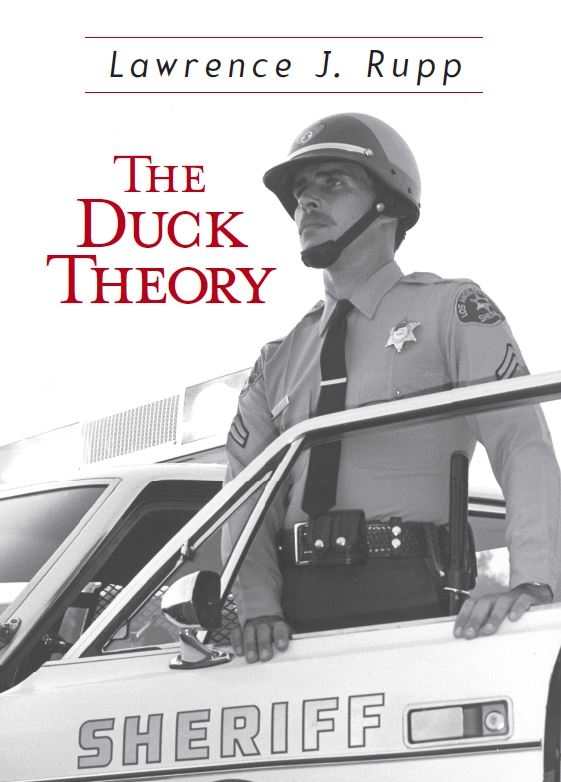The Duck Theory
This detailed, sometimes shocking memoir of an LA cop pulls no punches on crime and punishment.
Retired officer Lawrence J Rupp writes about his years in law enforcement, withholding no gritty details. The Duck Theory is a frank, politically incorrect, and shocking first-person account of life patrolling Los Angeles’s most dangerous streets.
The memoir, though lengthy, is presented as a series of brief vignettes, some less than a page in length. It is therefore easy to consume as a whole or in short stints, with events contained within their respective chapters. Rupp writes in a matter-of-fact tone, and his accounts are sensuously detailed, if sometimes visceral and disturbing.
Helpfully, Rupp starts from the beginning, relating his childhood as a scrappy young religious-school student, when he was prone to testing limits, though always held in line by his disciplinarian father. Young Rupp is painted as a charming, frustrating, and promising youth. Such presentations of his personal life, through to meticulously described vacation plane troubles near the memoir’s end, find Rupp at his most likable and complex.
His brother’s dangerous encounter with a group of brutal “thugs” led him toward police work, though altering his perception of the general public inexorably. Driven by a thirst for justice, he wove a career around Compton’s streets in the 1960s, during the height of racial tensions.
The stories about police work are bleak, shocking, and relentless: grisly murders, detailed down to bloodstains and brain matter; riots aplenty; drugs in ready supply. When culprits escape on technicalities, Rupp asks provocative questions that seem to test the edge of lawlessness: If the victim were your mother or brother, what would you want to do?
Many of these stories seem designed to show that no good can come of placing restrictive boundaries on police forces, or of lying to oneself about the nature, and location, of criminality. His theory, built on the maxim “If it looks, walks, talks and acts like a duck; then it’s a damn duck,” is that officers are better attuned to the realities of criminal elements than average citizens, and should be allowed room to work accordingly.
Unfortunately, Rupp’s stories don’t serve to build the sympathy necessary to sell such freedom, not even in high-crime areas. An officer watches a parent beat his son severely; later, the officer writes off a woman’s concerns related to a severed pet head found in her home. A story of a teen shot through the mouth and killed by a blustering officer is related with sympathy for the officer, rather than the deceased. Cold, unapologetic diction dominates.
Terms like “blacks” and “Marxist” reign throughout, and by the time Rupp repeats his maxim midway in defense of profiling, readers will have a full picture of just whom he considers to be probably criminal.
A no-holds-barred accounting of decades spent protecting the streets of Los Angeles, The Duck Theory offers insight into the psyches of law enforcement officials in high-crime areas. It is a revelatory, often disturbing, project.
Reviewed by
Michelle Anne Schingler
Disclosure: This article is not an endorsement, but a review. The publisher of this book provided free copies of the book and paid a small fee to have their book reviewed by a professional reviewer. Foreword Reviews and Clarion Reviews make no guarantee that the publisher will receive a positive review. Foreword Magazine, Inc. is disclosing this in accordance with the Federal Trade Commission’s 16 CFR, Part 255.

